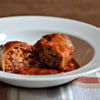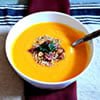| Sunday-Wednesday | Oct. 13-16—Tishrei 11–14
As soon as the solemn day of Yom Kippur is behind us, we focus on the traditions of the upcoming holiday of Sukkot. These four days between Yom Kippur and Sukkot are characterized by frenetic activity—purchasing of the Four Kinds, erecting the sukkah hut, inviting guests for the forthcoming holiday, shopping for and preparing all the meals, and purchasing new clothing in honor of the holiday. Click here for a purchaser’s guide for the Four Kinds. |
| Wednesday | October 16—Tishrei 14 The Day Before Sukkot It is customary to bind together the Four Kinds—the lulav, hadassim and aravot—today, while in the sukkah. Click here to learn how. Make an eruv tavshilin. On the day before Sukkot it is traditional to give extra charity, for true joy is sharing with others. Women and girls light holiday candles—preferably in the sukkah—in order to usher in the holiday. Click here for the text of the blessings, and here for local candle-lighting times. Click here for a summary of the laws of Yom Tov. Click here for a digest of the laws of dwelling in the sukkah. After evening prayers, we enjoy a holiday meal. Even if it is pouring rain, on this night it is a mitzvah to at least make kiddush and eat an ounce of challah in the sukkah. We dip the challah in honey. The group of supernal guests—Abraham, Isaac, Jacob, Moses, Aaron, Joseph and David—who grace our sukkahs throughout the holiday (known as ushpizin) are tonight and tomorrow led by our Patriarch Abraham. The chassidic entourage of ushpizin—consisting of the Baal Shem Tov, the Maggid of Mezeritch, the Alter Rebbe, the Mitteler Rebbe, the Tzemach Tzedek, the Rebbe Maharash, the Rebbe Rashab and the Rebbe Rayatz—is led by the Baal Shem Tov. Tonight begins the Simchat Beit Hasho’eivah celebrations. It is customary to dance and sing in commemoration of the water-drawing festivals held nightly in the Holy Temple throughout the holiday of Sukkot. Click here for more on Simchat Beit Hasho’eivah. |
| Thursday | October 17—Tishrei 15 1st day of Sukkot We shake the Four Kinds. Morning service. Full Hallel is recited. The priests bless the congregation with the priestly blessing during the Musaf prayer. Festive lunch meal in the sukkah. We dip the challah in honey. After dark, women and girls light candles—preferably in the sukkah—for the second day of Sukkot, using an existing flame. Click here for the text of the blessings, and here for local candle-lighting times. After evening prayers, a festive holiday meal in the sukkah. We dip the challah in honey. The group of supernal guests—Abraham, Isaac, Jacob, Moses, Aaron, Joseph and David—who grace our sukkahs throughout the holiday (known as ushpizin) are tonight and tomorrow led by our Patriarch Isaac. The chassidic entourage of ushpizin—consisting of the Baal Shem Tov, the Maggid of Mezeritch, the Alter Rebbe, the Mitteler Rebbe, the Tzemach Tzedek, the Rebbe Maharash, the Rebbe Rashab and the Rebbe Rayatz—is led by the Maggid of Mezeritch. Simchat Beit Hasho’eivah celebrations continue. It is customary to dance and sing in commemoration of the water-drawing festivals held nightly in the Holy Temple throughout the holiday of Sukkot. Click here for more on Simchat Beit Hasho’eivah. |
| Friday | October 18—Tishrei 16 2nd Day of Sukkot We shake the Four Kinds. Click here for a how-to guide. Morning service. Full Hallel is recited, followed by the Hoshanot (circling of the synagogue’s reading table with the Four Kinds, while reciting special prayers petitioning G‑d for ample livelihood in the coming year). The priests bless the congregation with the priestly blessing during the Musaf prayer. Festive lunch meal in the sukkah. We dip the challah in honey. Afternoon prayers. 18 minutes before sunset, women and girls light candles — preferably in the sukkah — for Shabbat. Click here for the text of the blessing, and here for local candle lighting times. After evening prayers, a festive holiday meal in the sukkah. The group of supernal guests—Abraham, Isaac, Jacob, Moses, Aaron, Joseph and David—who grace our sukkahs throughout the holiday (known as ushpizin) are tonight and tomorrow led by our Patriarch Jacob. The chassidic entourage of ushpizin—consisting of the Baal Shem Tov, the Maggid of Mezeritch, the Alter Rebbe, the Mitteler Rebbe, the Tzemach Tzedek, the Rebbe Maharash, the Rebbe Rashab and the Rebbe Rayatz—is led by the the Alter Rebbe. Simchat Beit Hasho’eivah celebrations continue. It is customary to dance and sing in commemoration of the water-drawing festivals held nightly in the Holy Temple throughout the holiday of Sukkot. |
| Shabbat | October 19—Tishrei 17 3rd day of Sukkot 1st day of Chol Hamoed We do not zshake the Four Kinds in observance of Shabbat. Morning service: with the addition of the Yaaleh Veyavo insert in the Amidah. Full Hallel is recited. We do not say today’s section of Hoshanot.
The Musaf for festivals is recited with the additions for Shabbat. During all of the intermediate days, Yaaleh Veyavo is inserted during all prayers and in the Grace After Meals. Festive lunch meal in the sukkah. Afternoon prayers. Evening prayers followed by the Havdalah ceremony in the Sukkah. The group of supernal guests—Abraham, Isaac, Jacob, Moses, Aaron, Joseph and David—who grace our sukkahs throughout the holiday (known as ushpizin) are tonight and tomorrow led by Moses. The chassidic entourage of ushpizin—consisting of the Baal Shem Tov, the Maggid of Mezeritch, the Alter Rebbe, the Mitteler Rebbe, the Tzemach Tzedek, the Rebbe Maharash, the Rebbe Rashab and the Rebbe Rayatz—is led by the Mitteler Rebbe. Simchat Beit Hasho’eivah celebrations continue. It is customary to dance and sing in commemoration of the water-drawing festivals held nightly in the Holy Temple throughout the holiday of Sukkot. And now that the holiday has concluded, the festivities are often accompanied by live music. Click here for more on Simchat Beit Hasho’eivah. Celebrate Sukkot’s Chol Hamoed (“intermediate days”). Between now and Shemini Atzeret, we may resume much (not all) of our regular, workday activities, but, of course, we continue to eat in the sukkah. It is customary to drink a glass of wine each day, in celebration of the festival. Click here for a digest of the laws of Chol Hamoed. Click here for a Sukkot event in your location. |
| Sunday | October 20—Tishrei 18 4th day of Sukkot 2nd day of Chol Hamoed (intermediate day) We shake the Four Kinds. Click here for a how-to guide. Morning service: In many communities, throughout the intermediate days of Sukkot, tefillin are not worn. The Musaf amidah is recited. During all of the intermediate days, Yaaleh Veyavo is inserted during all prayers and in the Grace After Meals. Chol Hamoed (the “intermediate days”) are observed with limited work restriction. Click here for a digest of the laws of Chol Hamoed. The group of supernal guests—Abraham, Isaac, Jacob, Moses, Aaron, Joseph and David—who grace our sukkahs throughout the holiday (known as ushpizin) are tonight and tomorrow led by Aaron the high priest. The chassidic entourage of ushpizin—consisting of the Baal Shem Tov, the Maggid of Mezeritch, the Alter Rebbe, the Mitteler Rebbe, the Tzemach Tzedek, the Rebbe Maharash, the Rebbe Rashab and the Rebbe Rayatz—is led by the Tzemach Tzedek. Simchat Beit Hasho’eivah celebrations continue. It is customary to dance and sing in commemoration of the water-drawing festivals held nightly in the Holy Temple throughout the holiday of Sukkot. Click here for more on Simchat Beit Hasho’eivah. Click here for a Sukkot event in your location. |
| Monday | October 21—Tishrei 19 5th day of Sukkot 3rd day of Chol Hamoed (intermediate day) Torah reading: Numbers 29:23-28 Morning service: In many communities, throughout the intermediate days of Sukkot, tefillin are not worn. The Musaf amidah is recited. During all of the Intermediate Days, Yaaleh Veyavo is inserted during all prayers and in the Grace After Meals. Evening prayers. The group of supernal guests—Abraham, Isaac, Jacob, Moses, Aaron, Joseph and David—who grace our sukkahs throughout the holiday (known as ushpizin) are tonight and tomorrow led by Joseph. The chassidic entourage of ushpizin—consisting of the Baal Shem Tov, the Maggid of Mezeritch, the Alter Rebbe, the Mitteler Rebbe, the Tzemach Tzedek, the Rebbe Maharash, the Rebbe Rashab and the Rebbe Rayatz—is led by the Rebbe Maharash. Simchat Beit Hasho’eivah celebrations continue. It is customary to dance and sing in commemoration of the water-drawing festivals held nightly in the Holy Temple throughout the holiday of Sukkot. Click here for more on Simchat Beit Hasho’eivah. Click here for a Sukkot event in your location. |
| Tuesday | October 22—Tishrei 20 6th day of Sukkot 4th day Chol Hamoed Morning service. The Musaf amidah is recited. During all of the Intermediate Days, Yaaleh Veyavo is inserted during all prayers and in the Grace After Meals. The group of supernal guests—Abraham, Isaac, Jacob, Moses, Aaron, Joseph and David — who grace our sukkahs throughout the holiday (known as ushpizin) are tonight and tomorrow led by King David. The chassidic entourage of ushpizin—consisting of the Baal Shem Tov, the Maggid of Mezeritch, the Alter Rebbe, the Mitteler Rebbe, the Tzemach Tzedek, the Rebbe Maharash, the Rebbe Rashab and the Rebbe Rayatz—is led by the Rebbe Rashab. Simchat Beit Hasho’eivah celebrations continue. It is customary to dance and sing in commemoration of the water-drawing festivals held nightly in the Holy Temple throughout the holiday of Sukkot. Click here for more on Simchat Beit Hasho’eivah. Click here for a Sukkot event in your location. Tonight and tomorrow is Hoshana Rabbah. It is customary in many communities to remain awake all night. It is traditional to recite the Book of Deuteronomy before midnight, and the Book of Psalms after midnight. |
| Wednesday | October 23—Tishrei 21 7th day of Sukkot 5th day of Chol Hamoed (intermediate day) Hoshana Rabbah We shake the Four Kinds. Click here for a how-to guide. Morning service: In many communities, throughout the intermediate days of Sukkot, tefillin are not worn. The Musaf amidah is recited. During all of the intermediate days, Yaaleh Veyavo is inserted during all prayers and in the Grace After Meals. Chol Hamoed (the “intermediate days”) are observed with limited work restrictions. Click here for a digest of the laws of Chol Hamoed. Many have the custom to eat kreplach—ground beef- or chicken-filled dough, folded into triangles—on this day. Click here for a recipe. These are usually eaten during the festive lunch meal, during which one also washes over challah or bread. Click here for more about Hoshana Rabbah. Tonight is Shemini Atzeret. Women and girls light candles — preferably in the sukkah — for the holiday. Click here for the text of the blessing, and here for local candle lighting times. Women and girls light holiday candles—preferably in the sukkah—in order to usher in the holiday. Click here for the text of the blessings, and here for local candle-lighting times. Please refer to our Shemini Atzeret/Simchat Torah Calendar for further instructions. |
ב"ה





Join the Discussion